Fernando Roig: “We've had 20 good years; the best at Villarreal has yet to come”
On 15 May 1997, Fernando Roig called a press conference at the Restaurante Avenida 41 in Vila-real to announce that he had bought local outfit Villarreal CF...
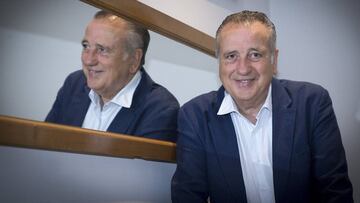
On 15 May 1997, Fernando Roig called a press conference at Restaurante Avenida 41 in Vila-real where he announced that he had bought local outfit Villarreal CF - the club had only gained promotion to the Second Division five years earlier, and usually finish in the middle order in each of those seasons.
Just 12 months after that announcement, Roig's club made their first ascent to the top flight, and eight years after that, were contesting the Champions League semi-final against Arsenal. Villarreal have consolidated their place among Europe's top sides but it has been a long and gradual process. The coastal side has taken small steps taken along the way, winning the now-defunct Intertoto Cup allowed them entry to the UEFA Cup - they reached the semi-final in their first campaign only to be knocked out, painfully, by their regional neighbours Valencia. The following season, they got as far as the quarter finals, being eliminated over two legs by AZ Alkmaar. But all of this experience in European competition was having a positive effect on the club and getting them noticed.
AS went back to Restaurante Avenida 41 to reflect over the past 20 years with Roig, the man who made it all happen.
Is there a frustrated footballer lurking somewhere inside you?
Me? Nooo, not at all. I did play when I was in school. I had about as much class as I had fear. I never wanted to be a football player.
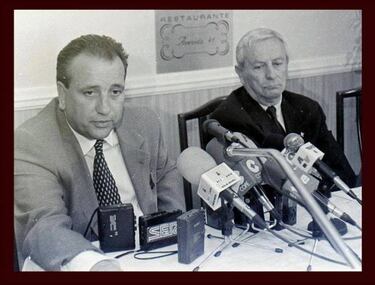
1997: Fernando takes a chance on Villarreal
Why did you buy Villarreal 20 years ago?
For the hope and excitement of being able to do something big. [Former President] José Manuel Llaneza offered me the chance to buy the club and I bought it off [Pascual] Font de Mora. At that time I was president of Pamesa Valencia basketball club. I was involved with both clubs for several years.
What did you get for your money?
A club which had quite a sizeable debt and which was in the Second Division. When I arrived at Villarreal there was Llaneza and a typewriter... And the fans. There was no training ground and the stadium, El Madrigal, which was falling down, had a capacity of 3,000.
What were your intentions back in 1997?
I saw that with a bit of hard work we could go far. The club was already in the Second Division thanks to all of the hard work and effort which everyone had put in and Font de Mora was key in that. Our project was to get the team promoted to the top flight within three seasons and we did it in one...
... then the team dropped back down to the Second Division...
Yes, and we managed to return the following year after finishing third. So we did it in three years just like we said we would. We spent the next 13 years in the Primera Division - plus the most recent four years, so 17 in total. The Villarreal we see today is the one I had imagined.
What do you see?
A club which has consolidated its position in the top division and which is battling in Europe every year; a club with almost 20,000 signed-up season ticket holders; with two training complexes, a stadium which can house 22,000 spectators and with which we will soon be starting the second phase of its refurbishment which is giving employment to 450 workers... The best of Villarreal is yet to come.
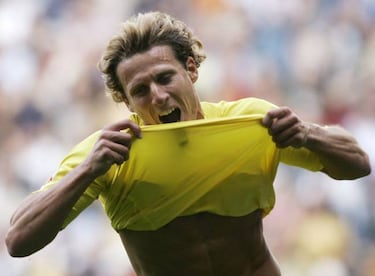
Villarreal's closes brushes with glory
Do you mean winning silverware?
The fans can complain that we haven't won a trophy... but I'd like to assure them that really, the best thing for Villarreal is ensuring that the club remains in the top flight - that's our own Cup tournament in a way. For this club, the most important triumph is playing in the top division every year and playing in Europe every now and again. We are among a group of clubs who have a budget of between 75 and 110 million euros. The clubs who really do aspire to winning trophies have a budget of around 300 million and some can afford to spend over 500 million. I will say one thing: Villarreal is economically stable and in a few years' time, our youth academy will be a source of new talent for the team.
Do you feel Villarreal has to make up for those harrowing defeats after coming so close in the Champions League, Europa league and Copa del Rey?
Of course I would have loved to have seen the team in the final in Paris against Barcelona. I remember that delegates from all of the semi-finalists visited Paris to organize the potential division of hotels and tickets which UEFA would have given us had we reached the final. UEFA said they would give us half of 50% and I told them, no way - if we reach the final we will fill our allocated zone. It wasn't to be. Arsenal knocked us out, with Robert Pires, who we had practically signed for the next season.
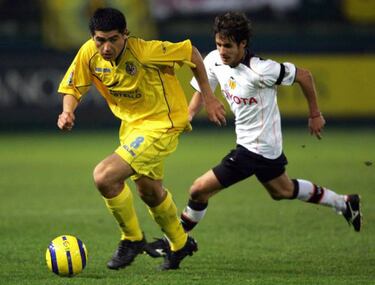
Villarreal's intelligent dealings in the transfer markets
On the subject of signings, Villarreal made some incredibly shrewd moves in the transfer market. Which one really stands out? Palermo, Pepe Reina, Riquelme, Pires, Forlán, Godín...
Each one was different in its own way. Maybe [Martín] Palermo, for being the first big name signing. He helped put us on the map. It was around Christmas time 2001. Palermo had just won the FIFA Club World Championship or Toyota Cup as it was called, with Boca. We really had to stretch our finances to get Palermo. José Manuel [Llaneza] suggested we buy a 50 per cent stake in the player but that was too complicated so we bought him outright. Like [Diego] Forlán, who was another historic signing for us.
How did Forlán's transfer transpire?
In negotiations with Manchester United, we wanted to include a friendly match as part of the deal. They told us they weren't prepared to come to Vila-real to play. I turned to Llaneza and said: “Don't worry, they'll be obliged to come here one day and we won't have to pay them”. The following year we were paired with United in the Champions League. They still haven't beaten us. One of their top players, (Rooney) lost his temper in one of those games and got himself sent off.
Was letting Riquelme leave one of the toughest decisions you have had to take?
No, why? You make the decisions which need to be made. The only difference is that this is football and it all gets blown out of proportion. In a business when commercial manager is sacked, the only ones who know about it is you, him and his family. In football, you sack the kit man and you're starting a revolution. But getting back to Riquelme or any other player, the most important thing is the club, not the people. I remember Riquelme was an utter phenomenon... when he felt like it...
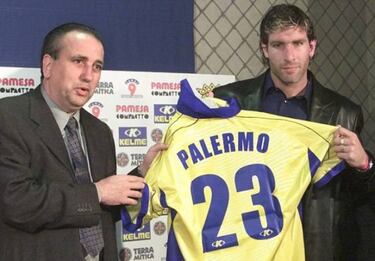
Modest but attainable objectives
What limits have you set Villarreal?
To get as far as we can. There are no limits. We've had 20 good years and now we want 20 better ones. But every year I say the same: the objective is to be among the first 17 teams in the table at the end of the season - and not among those who end 18th, 19th and 20th and drop down to the Segunda. We're in a good moment. A more equal division of television rights revenues, which is something we fought for a long time to get, helps.
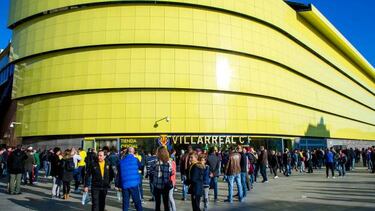
How much is Villarreal worth today?
About 190 million euros has been invested. That's including what we have put in and what was there already. Around 50 million in the Estadio de la Cerámica, which hasn't cost the city's taxpayers a single euro. How much is the club worth? Worth can only be calculated for something which is for sale. If I was offered 300 million euros I still wouldn't sell it.
Related stories
How has football changed in Spain in the last 20 years?
The league competition is much more serious and professional than it used to be. The clubs owe less money; if you don't comply to the rules, you can't sign anyone. There is more money for the sharing out of revenue for broadcasting rights. Before the Liga would do a lot of talking but then do nothing. [Javier] Tebas has achieved economic order and has tackled issues such as fraud in the game and violence at the stadiums.